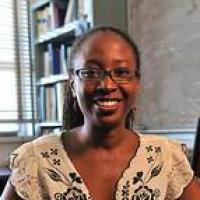非常抱歉,
你要访问的页面不存在,
非常抱歉,
你要访问的页面不存在,
非常抱歉,
你要访问的页面不存在,
验证码:

职称:Assistant Professor
所属学校:Duke University
所属院系:physics
所属专业:Physics, General
联系方式:919) 684-1723
Hadron colliders are attempting to produce evidence of phenomena beyond the "Standard Model" of particle physics, which is our current, best description of how fundamental particles interact. This description works very well for collider experiments, but is known to be incomplete: it doesn't explain neutrino masses and mixings, it cannot account for dark matter, and it doesn't treat gravity or the accelerating expansion of the universe. The observation of particle interactions that the Standard Model cannot explain would help us build up a better theory that accounts for these striking phenomena. In my research I concentrate on better understanding what takes place in hadron collider events with complicated final state topologies, like the production and decay of top quarks and heavy gauge bosons. In these events, I am looking for any hint of non-Standard Model interactions. My current studies use the ATLAS detector at the Large Hadron Collider (LHC), and consequently, many of my recent research activities also support the broader experimental program of ATLAS.
Researchers at hadron colliders are attempting to produce evidence of phenomena beyond the "Standard Model" of particle physics, which is our current, best description of how fundamental particles interact. This description works very well for collider experiments, but is known to be incomplete: it doesn't explain neutrino masses and mixings, it cannot account for dark matter, and it does not treat gravity or the accelerating expansion of the universe. The observation of particle interactions that the Standard Model cannot explain would help us build up a better theory -- one that accounts for these striking phenomena. In my research I concentrate on understanding what takes place in hadron collider events with complicated final state topologies, like the production and decay of top quarks and heavy gauge bosons. In these events, I am looking for any hint of non-Standard Model interactions. My current studies use the ATLAS detector at the Large Hadron Collider (LHC), and consequently, many of my recent research activities also support the broader experimental program of ATLAS.